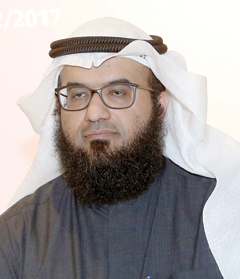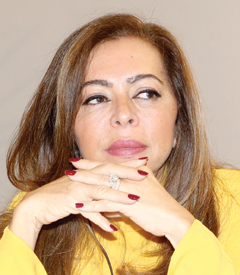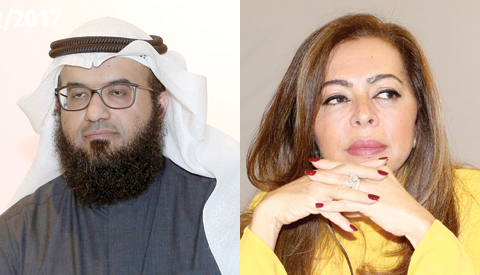Secularism not a solution for Muslim majority countries: Sharia professor
 Mutlaq Al-Jasser
Mutlaq Al-JasserKUWAIT: Niqashna held a civilized debate entitled 'the separation of religion and state' on Wednesday at promenade culture center in Promenade Ball in Hawally. Niqashna (our debate) is a community platform for open debates in Kuwait. It aims to tackle an array of important social and political issues by engaging all members of society. The negative team was represented by Dr Mutlaq Al-Jasser, who is a Sharia Faculty professor at Kuwait University (KU).
He stated that he is against the separation of religion and state because Islam has the answer to most laws, and the other issues are covered by civil laws such as work and traffic laws. "I am against secularism because it is a failure to ignore your belief in God and the prophet and follow people's orders. Who created me is the only one to control me. Secularism cannot be a solution for countries with a Muslim majority or even a sizeable minority, for it requires people to replace their God-given beliefs with an entirely different set of man-made beliefs," he said.
Responding to the sayings that there are no religious countries and Islam is not fair to all, Jasser affirmed that the Prophet Muhammad (PBUH) was known for his fair leadership for all religions where under his lead all religions lived in peace. However, sharia is an all-encompassing program for every aspect of life, including the governance of the state.
He argues that the separation of religion and state is un-Islamic, adding that the world needs the real version of Islam, not the Islam of extremists like the Islamic State (IS) group. "Islam cannot be separated from the state because it guides us through every detail of running the state and our lives. Muslims have no choice but to reject secularism for it excludes the law of Allah," he said.
Cannot be imposed
 Dalaa Al-Mufti
Dalaa Al-MuftiSupporters of the secular state argued that the values of one religion cannot be imposed on members of different religions that are present in our countries. They pointed out that under the law of Islam, other religions are not prohibited. At the same time, people are provided with doctrines for legislation and running of the state that will protect people of all faiths living in the state.
Writer Dalaa Al-Mufti, supporter of the separation of religion and state said, "We have to admit that there is no such thing as a religious country. Countries do not pray; people do. We cannot force the people to follow our religion." She explained that secularism is not a religion; it is neutral. It gives people the right to follow whatever religion and beliefs they want. She also suggested that religious people must keep their distance from politics, not to protect the politics but to protect the image of religion as religion is a spiritual thing between a person and God, so one must avoid showing it off or take advantage of it.
Mufti noted that people need to face the hard reality that even so-called moderate or mainstream Islam presents huge problems because it calls for religion to have a major influence on political decision-making. "The partnership of religion and government in much of the world is troubling because it involves government policies being influenced by myth, superstition and supernaturalism and an absurd argument about God. It is one thing to believe that there is some kind of power or source beyond our understanding and quite another to believe that any religious hierarchy should influence legislation or governance. The latter leads us down a dangerous path," she added.
By Faten Omar











